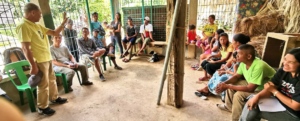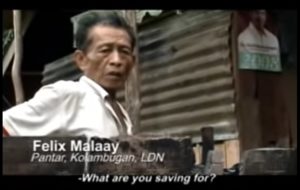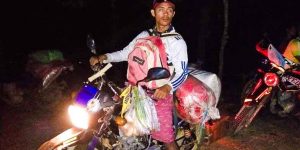The World Humanitarian Summit and the Agenda for Humanity and the launch of the Grand Bargain in 2016 was a way to reform the humanitarian system to make it more fit for the future. The ‘Grand Bargain’ is an agreement between the biggest donors and aid organisations that aims to get more means into the hands of people in need. It is essentially a ‘Grand Bargain on efficiency’ between donors and humanitarian organisations to improve the effectiveness and efficiency of humanitarian action. This inspired and brought great hope to local and national CSOs who were involved in the consultations leading up to the World Humanitarian summit. They were hoping for its implementation at country level. During the last few years, the Grand Bargain and Charter4Change annual reports have emphasized the gap in the implementation and the slow progress of GB commitments at country level, leading to strong advocacy by local and national NGOs, Charter4Change and the Grand Bargain localisation work stream to implement localisation commitments at country level.
The initiative to map the state of localization by multi-stakeholder dialogue was seen to be the first step in raising awareness of the commitments, understanding country level progress, document the good practices already existing and the way forward. The Philippines country level dialogue is part of a global effort to promote better understanding and implementation of the Grand Bargain localisation commitments. As part of its commitment as the 63rd signatory of the Grand Bargain, the Alliance for Empowering Partnership (A4EP) committed to support two such dialogues in collaborative process with its members in the Philippines and Jordan. In the Philippines, the Ecosystems Work for Essential Benefits ECOWEB is taking the lead in the process in collaboration with the UN OCHA, OXFAM Philippines and A4EP and with support from the UN Resident Coordinator. The dialogue process is organised in collaboration with various CSO networks in the country and with support from the Centre for Disaster Preparedness and Asian Preparedness Partnership.
The objective for the country dialogue process is to promote and institutionalise the implementation of Grand Bargain commitments on localisation and participation revolution at the country level. It will help create a greater sense of momentum and provide the space to explore synergies and linkages with existing humanitarian coordination mechanism, donors and Philippines INGO networks, private sector, local and national CSOs and national authorities. It will assist in identifying opportunities and challenges to localisation and to develop a county level plan of action and tracking mechanism. The aim is to complete the process by June 2021 and share the learning and recommendations from the process nationally and with the Grand Bargain signatories and beyond.
The process started with development of collaboration between UN OCHA, ECOWEB, Oxfam and A4EP with strong support from UNRC’s office. A committee was formed facilitate planning and resourcing. It meets every Friday to discuss developments and to make decisions and to iron out issues as they arise. The idea of the country level dialogue was first presented to the Humanitarian Country Team to raise awareness amongst the agencies and to encourage them to take part in this important process.
Using the seven-dimension framework used in many other countries, a guide for the dialogue process was developed and online survey was conducted to determine the state of localisation based on views and perspectives of the Local and National CSOs, business sector groups doing humanitarian work, INGOs and UN agencies. A guide was also developed to carry out focus group discussions with the affected populations. This was deemed a key element to put the affected population at the centre of this process. Twenty-five (25) FGDs were carried out with the population affected by crisis in different parts of the country in March, while an online survey was completed by local and national CSOs, private sector, INGOs, and UN agencies during March to April. The results of the FGDs with the affected population and feedback from the online surveys are shared in the on-going online dialogue sessions with INGOs, UN, CSOs, the business sector and the government. The insights gathered throughout the dialogue process will be documented and shared at the final multi-stakeholder internetwork dialogue in June to plan the way forward and develop an action plan for Localisation in the Philippines. The report of the whole process will be published at the end of the process.
Peer to Peer learning session will be held to share the experiences from this exercise. If you would like to know more please contact Nanette Antequisa, regina.antequisa@ecowebph.org or Smruti Patel spatel@gmentor.org








